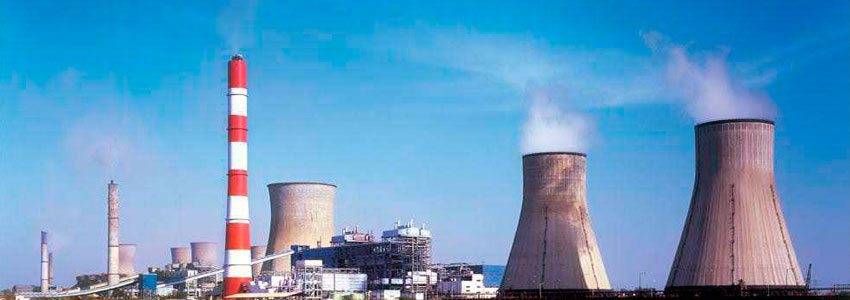Power Plant Engineering

IMTE Training Institute Pvt. Ltd. – A world class Power plant engineering training and certification institute in Faridabad, India serving clients & participants from over 12 branches.
Process Engineering (Basic) is the First Stage in various fields of engineering. A process engineer plays an important role form “concept to Commissioning” in all sectors of process and related industries. With increasing emphasis on research and development new technology, new product and global competition, the requirements of skilled process engineers is increasing day by day.
A process Engineer has to be conversant with subject such as Fluid Handling, Unit Operation and reaction kinetics Nuclear and Thermal power stations Material of Construction, Field Instrumentation, Statutory and Safety aspects. MIT is the first institute in India to commence this course to meet the global challenges in basic engineering. MIT has proven its expertise in skill development program for Process engineers.
Today this industrially accepted course, India’s first ever in Process engineering, will become pioneer in education and training in all aspects of Process design and stands ready to meet their needs. IMTE Training Institute Pvt. Ltd. is a leading professional institute for Power plant engineering courses in Delhi NCR, India for its training and certification programs.
Scope for Process Engineer
There are ample of opportunities for process engineering in various sectors of Chemical, Petrochemical, Energy industries. The process engineering constitutes over 25% of total Engineering man-hours in various industries like Chemical Process Industry, Oil & Gas sector and Thermal Power Plant. The prominent application sectors/industries for Process Engineering are Manufacturing, Process Engineering Licensers/Consultancy, Research and Development Organizations, Atomic and Nuclear power stations and Project Engineering firms.
The manufacturing industries include Chemical and Petrochemical Plants, Pharmaceutical Industry, Agrochemical Industry, Food & Beverages, Cosmetic Industry, Biotechnology, Mineral Processing and CNG/LPG Plants etc.
 Global Challanges For Process Engineer
Global Challanges For Process Engineer
-
Developing Environmental friendly and Energy saving technologies.
-
Invention of alternative recourses and fuels.
-
Application of Process Intensification/Integration.
-
Corrosion prevention and control, reduction in industrial pollution.
-
Leak detection for large scale of process industry.
-
Deep water services.
-
Plant operating efficiency.
-
Application of Biotechnology and Nanotechnology.
-
Development of hybrid and dynamic systems etc.
Role of Process Engineer
A process engineer plays major role at every stage of Process Engineering. Traditionally Process Engineers have been contributing in various industries. A process engineer has to be conversant with subject such as Fluid Handling, Unit operation, Material of Construction, Field Instrumentation, Statutory & safety aspects. The Pre–requisite skills for a Process engineer comprise Design, Manufacturing, Project Planning, Corrosion control system Metallurgical consulting, Facility audits, Automation & Control Systems, Security / commission of small & large scale process industry.
Course Contents
-
The course is blend of theory, practical, simulation training, seminar, project and industrial visit.
-
The performance reviewed by written examinations at the end semester, one project and presentation of seminars.
-
Basic Engineering Package (BEP) This module covers Input and Output of BEP, Like PFD specification and Equipment Layout, Plot Plan, Selection of MOC, Corrosion treatment, Material and Energy Balances.
-
Process Automation Control It covers various important instrumentation equipments and their application, introduction to Control Valve, Types and characteristics, Control Logic, introduction to PLC, DCS, and SCADA etc.
-
Plant Commissioning This module gives information about Plant commissioning, stages of Plant commissioning, Pre-commissioning checks and operation, start-up operation, operating manual and troubleshooting,
-
Energy & Energy Integration This module covers Heat Integration, Concept, Use and approach, Heat Exchanger Design, types and application, Logic for Energy Integration, Simulation application for Energy Integration.
-
Utility Handling & Fluid Handling In utility handling Utility sizing and specifications, System design for utilities utility like Steam, compressed air, WTP, refrigeration etc. is covered, where as fluid handling section covers Basic Theory of Fluid Handling, Valve Selection, selection of rotary equipments and simulation application.
-
Statutory Regulation & Industrial Safety It covers Hazardous classification, Industrial safety norms and Health directorate etc., HAZOP and HAZAN study.
-
Industrial Processes for Separation This module covers industrial separation processes like Evaporation, Crystallization, Drying, Absorption, Stripping , Liquid, Extraction, Decantation and simulation application. It also covers Distillation and type of Distillations, Distilliation Column Design.
-
Reactor Design It covers Heterogeneous Reactions, Catalytic and Non- Catalytic Heterogeneous Reactions, Reaction Kinetics, Various Reactors Design and optimization and simulation application.
-
Process Optimization and Economics It covers Costing of Project, Economical feasibility and analysis of Process etc.
-
Topics to be touched: Piping, Hygienic Plant, Interface with other Departments.
-
Soft skills: Project Communication, Behavioral skills, and time management.
-
Practical: Legend symbol, Preparation of basic drawings like PID, BFD and Equipment Layout etc.
-
Seminar, Project work
-
Software: Hysis Unisim / HTRI